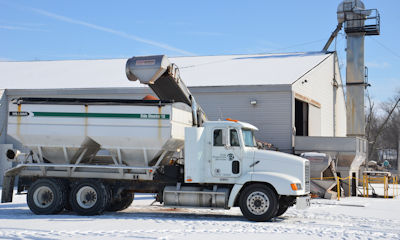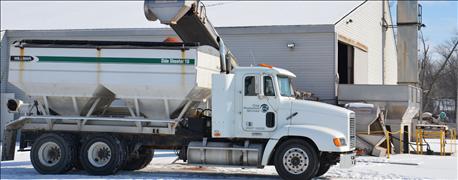February 9, 2016

Fertilizer prices have dropped substantially since January 2015. Using information from USDA-IL Department of Agricultural Market News, nitrogen prices dropped approximately 20 %, phosphorus prices approximately 15 % and potash prices approximately 23% from January 2015 to January 2016. Let’s look at the impact of these fertilizer price declines on production costs for rotation corn and rotation soybeans.
Corn by the numbers

CHEAPER FERTILIZER: Lower fertilizer prices for 2016 could help you chip away at crop production costs.
Using Purdue University cost and returns budget information, the reduction in fertilizer prices for rotation corn results in a $30 per acre, or $0.19 per bushel, decrease in fertilizer costs from 2015 to 2016. This decline represents a 20% decline in fertilizer costs. In 2015 fertilizer costs on average productivity ground for rotation corn were $147 per acre, or $0.89 per bushel. This year projected fertilizer costs are $117 per acre, or $0.70 per bushel.
Soybean picture
For rotation soybeans the decrease in fertilizer costs from last year’s budget is $12 per acre, or $0.24 per bushel. This represents a 21% decline in fertilizer costs. Budgeted fertilizer costs were $57 per acre in 2015 and $45 per in 2016.
The reduction in fertilizer costs, along with the anticipated reductions in fuel costs and cash rent, has a large positive impact on breakeven prices for corn and soybean budgets for 2016.
Related: Keep up on fertilizer costs - Weekly Fertilizer Review
For rotation corn the breakeven price to cover variable costs (total costs) on average productivity ground has declined from $2.70 to $2.42 per bushel, or from $4.98 to $4.57 per bushel. For rotation soybeans the breakeven price declined from $4.44 to $4.08 per bushel, or $11.94 to $11.18 per bushel.
More information pertaining to cost items for corn, soybeans and wheat can be found on the web site for the Center for Commercial Agriculture.
- Langemeier is director of cropping systems for Purdue University’s Center for Commercial Agriculture. He writes from West Lafayette.
You May Also Like




